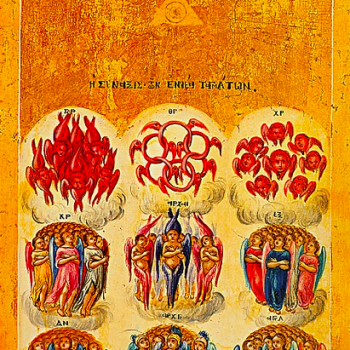No one should be surprised when someone cites major changes taking place in the religious landscape. My colleagues at Baylor working on the Baylor Religion Survey are part of a wave of religious scholars noting the rise of the "Nones," spiritual but not religious people who are disaffected from traditional forms of faith. My friend Phyllis Tickle details in books like The Great Emergence and Emergence Christianity how Christianity is changing to seek a faithful response to Christ in this shifting landscape. Progressive evangelicals like Brian McLaren write books like A New Kind of Christianity (and this childhood evangelical wrote The Other Jesus) seeking a way to honor the central tenets of the faith that tend to get lost in American Christianity's adherence to rules, judgment, and the bundling of Church with State.
Big changes are happening, and we react to change in different ways. So when Rob Bell and a New American Christianity, a book exploring a central figure in this shift, Rob Bell, suggests we may see him as a paradigm of a new way of being the Body of Christ, there are two obvious reactions to the books that happen to parallel the larger reaction to Rob Bell noted in the book itself (one measure of the intensity of this reaction: Rob Bell was named one of the 100 most influential people in the world in 2011 by TIME magazine).
We could, like prominent American pastors and writers John Piper and Mark Driscoll, dismiss Bell's theology and think of him as heretical because Bell asks, for example, if perhaps God's love is powerful enough to redeem the entire cosmos instead of condemning a large portion of it to eternal suffering. The theological body-checking over Bell's book Love Wins, which wrestles with the large questions of Heaven and Hell, was indicative of a religious community, American evangelicals, who are feeling dangerously challenged on a central orthodoxy.
So one response to a popular but mistaken preacher: condemnation and relegation to outer darkness.
Another response, the one James K. Wellman, Jr. suggests in Rob Bell and a New American Christianity, is to see Bell as a faithful follower of Christ who is seeking to reject false American orthodoxies for a truer gospel, and who is employing whatever strategies and technologies he can—the mega-church, short films, books, the Web, and the larger culture—to preach a Jesus who hates war, loves us, and wants us to be faithful in the things that matter. As Professor Wellman notes, Bell is "slipping a Christian message into secular culture, translating secular thought into Christianity, planting a liberal Christian message into evangelicalism, and taking the passion of the evangelical message into liberal Christianity." (20) Because of this, Bell strikes Wellman—and me—as a vital figure for us to understand in the current religious landscape.
Professor Wellman expertly explores Bell's position in American Christianity through several lenses: the "subversive" nature of his ministry, his charismatic leadership, his draw to the arts as a medium for communicating truth, his "radical" rejection of Christianity's union with American empire, his "heretical" teachings, and his focus on the Kingdom of God proclaimed by Jesus. Readers who may be a part of Mainline Protestant denominations like the Episcopalian or UCC/Congregational strains of Christianity will not find much about Bell subversive, radical, or heretical. But for an evangelical to stake out this ground and to reject some of the sureties of mainstream American evangelical Christianity is earth-shaking within that community. As a friend of Brian McLaren's, noted by Wellman as a huge influence on Bell, I have observed how Brian has been villainized by evangelicals for advancing some of these ideas; the reaction to Bell is similar, if even more intense because Bell has staked out a larger cultural spot for himself. (77) Bell's Nooma films have been downloaded three million times; Love Wins spent twenty weeks on the New York Times Bestseller List and got Bell on the cover of TIME. Bell is currently the loudest progressive voice in American Christianity, and so its easiest target.





